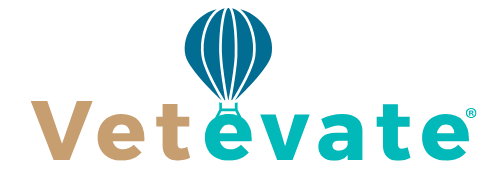To successfully recruit veterinarians, employers must understand the evolving hiring landscape within the Animal Health industry and use specialized tools that connect them directly with qualified professionals. Veterinary medicine continues to grow rapidly, driven by increased pet ownership, advanced medical technologies, and expanding service demands. However, this growth also brings a talent shortage, making it more difficult for clinics and hospitals to find skilled and compassionate professionals. Traditional recruitment platforms often lack focus, attracting applicants outside the Veterinary field and wasting valuable time.
Specialized Veterinary job boards solve this problem by offering targeted exposure and efficient tools for hiring managers seeking experienced practitioners. These platforms are designed specifically for the Veterinary and Animal Health communities, ensuring every connection is meaningful and relevant. By leveraging these job boards strategically, employers can streamline their hiring process, enhance candidate quality, and successfully recruit veterinarians who align with their mission and practice values.
Understanding the Modern Veterinary Job Market
The need to recruit veterinarians has become one of the most pressing challenges in the Animal Health industry. Across clinics, hospitals, and research facilities, the demand for Veterinary professionals continues to exceed supply. The American Veterinary Medical Association and other organizations have reported consistent workforce shortages, particularly in rural areas and specialized disciplines. As a result, hiring managers must adopt smarter recruitment strategies that focus on reaching active and qualified candidates.
Veterinarians today are looking for more than just employment; they seek meaningful careers where their skills, compassion, and personal values align. Therefore, employers must recognize the changing priorities of candidates. Competitive compensation remains essential, but so does workplace culture, mentorship, and opportunities for professional growth. In addition, many veterinarians value work-life balance and emotional well-being. Employers that communicate their commitment to these principles gain an advantage when attracting top candidates.
Traditional job boards, while useful for general recruitment, fail to provide the depth of industry-specific targeting required for Veterinary hiring. Listings often get buried among unrelated postings, leading to mismatched applications and extended hiring cycles. In contrast, specialized Veterinary job boards cater exclusively to the Animal Health field. They attract veterinarians actively seeking roles in clinical practice, research, or public health. Consequently, employers using these platforms benefit from immediate access to a focused audience of qualified professionals.
Moreover, the Veterinary job market has become increasingly digital. Candidates expect streamlined application processes, mobile-friendly platforms, and transparent communication. Employers who embrace these tools demonstrate modernity and efficiency, making their practices more appealing. By understanding these market shifts and adapting accordingly, organizations position themselves for success. Therefore, those who combine digital engagement with personalized outreach are far more likely to recruit veterinarians who are not only capable but also committed to long-term growth.
Why Specialized Job Boards Work
Employers who want to recruit veterinarians efficiently often find that specialized Veterinary job boards offer unmatched precision and effectiveness. Unlike general hiring platforms, these industry-specific boards focus solely on Animal Health careers. This specialization ensures that every listing, candidate, and feature serves the needs of Veterinary employers and job seekers alike.
The primary advantage lies in targeting. Specialized job boards reach veterinarians who are actively searching for opportunities within the profession. Employers no longer waste time sorting through irrelevant resumes or unqualified applicants. Instead, they can connect directly with candidates who have the right credentials and experience. In addition, most platforms allow employers to filter applications based on factors such as specialty, certification, and years of practice. This precision reduces hiring time and improves candidate quality.
These job boards also enhance visibility for employers. A clinic or hospital that posts on a recognized Veterinary platform instantly reaches a network of professionals who trust the source. This credibility increases engagement and application rates. Moreover, specialized boards often include profile features that let employers highlight their workplace culture, mission, and benefits. This helps job seekers envision themselves as part of the team, strengthening emotional connection even before interviews begin.
Another key benefit is data. Specialized platforms provide analytics that help employers monitor performance metrics, such as the number of views, applications, and engagement rates. This feedback allows hiring managers to refine their listings and recruitment strategies. In addition, many boards offer marketing tools that promote listings through newsletters or social media, further expanding reach.
Ultimately, specialized job boards create efficiency and alignment. They simplify recruitment while ensuring that every interaction between employer and candidate is relevant and professional. Consequently, organizations that invest in these platforms can consistently recruit veterinarians faster and more effectively than those relying solely on traditional methods.
Writing Job Listings to Recruit Veterinarians
A well-crafted job listing is one of the most powerful tools to recruit veterinarians successfully. The job post serves as both a marketing message and an initial impression of the organization. Therefore, employers must write listings that capture attention, communicate values, and encourage qualified candidates to apply.
Each posting should begin with a clear, concise title that specifies the role and location. For example, “Small Animal Veterinarian in Denver” communicates essential information immediately. The opening paragraph should highlight what makes the position attractive, such as advanced medical equipment, mentorship programs, or an emphasis on compassionate care.
Employers should describe daily responsibilities and expectations in a way that emphasizes collaboration and professional development. Veterinarians often seek workplaces that encourage growth and learning. Therefore, including information about continuing education, certifications, or leadership opportunities adds significant appeal. In addition, employers should be transparent about work schedules, compensation ranges, and benefits. Transparency builds trust and helps attract serious candidates.
Tone is another critical factor. Listings written with warmth and authenticity resonate more strongly than impersonal or overly formal posts. Employers should reflect the culture of their clinic or organization, showing how their teams value teamwork and patient care.
Finally, each job post should include a clear call to action, inviting candidates to apply directly through the job board or submit their resumes. Optimizing the listing for search visibility using relevant keywords—such as “veterinarian,” “Animal Health,” and “Veterinary hospital”—further enhances discoverability. When employers combine precision, authenticity, and transparency, their postings become powerful recruitment tools that help them recruit veterinarians who fit both professionally and culturally.
Engaging Candidates During the Hiring Process
Once applications begin arriving, employers must focus on engagement to recruit veterinarians successfully. Communication throughout the hiring process plays a vital role in shaping candidate perception. Timely and professional responses demonstrate respect and reinforce the employer’s reputation.
Specialized Veterinary job boards often provide integrated communication tools that simplify candidate management. Employers can view profiles, track applications, and schedule interviews without leaving the platform. This streamlined process reduces delays and keeps candidates informed. Moreover, automated responses acknowledging receipt of applications help maintain transparency and engagement.
During interviews, employers should balance technical evaluation with personal connection. Veterinarians are not only medical professionals but also compassionate caregivers who value trust and teamwork. Therefore, employers should discuss not just clinical skills but also collaboration, communication style, and approach to patient care.
In addition, providing clear details about career progression, mentorship, and continuing education opportunities helps build confidence in the employer’s long-term commitment. Many candidates choose positions where they feel supported in both professional and personal growth. Therefore, emphasizing these aspects can make a critical difference.
Finally, prompt follow-up after interviews is essential. Even candidates who are not selected appreciate feedback and professionalism. Positive interactions, regardless of outcome, contribute to the employer’s brand within the Veterinary community. Over time, this reputation attracts more qualified applicants, making it easier to recruit veterinarians in the future.
Building Long-Term Retention Strategies
The ability to recruit veterinarians effectively depends not only on hiring practices but also on retention strategies. A strong recruitment process loses value if turnover remains high. Therefore, employers must create environments that encourage long-term satisfaction and professional growth.
Retention begins with culture. Veterinarians thrive in supportive, collaborative workplaces where they feel appreciated and respected. Employers should foster open communication and recognize staff achievements regularly. In addition, promoting work-life balance through flexible schedules or mental health support demonstrates genuine care for employees’ well-being.
Professional development also drives retention. Offering continuing education allowances, conference attendance, or mentorship programs signals investment in employee growth. Many veterinarians seek opportunities to specialize or take on leadership roles. Employers who facilitate this progression not only retain talent but also strengthen their teams’ expertise.
Compensation remains a key factor, but non-monetary benefits are equally powerful. Creating a positive work environment where employees feel heard and valued reduces stress and turnover. Moreover, transparency and fairness in policies build trust across all levels of staff.
By focusing on culture, communication, and development, organizations transform recruitment into a long-term success strategy. When veterinarians feel supported and motivated, they become advocates for the practice, referring peers and enhancing reputation. Therefore, effective retention complements recruitment, ensuring that once employers recruit veterinarians, they keep them engaged, fulfilled, and loyal to the mission of exceptional Animal Health care.
How to Recruit Veterinarians in the Future
As the Animal Health industry evolves, employers who use innovative approaches to recruit veterinarians will continue to thrive. Technology and specialization are reshaping how Veterinary professionals connect with employers. Artificial intelligence, predictive analytics, and data-driven hiring tools are becoming integral to modern recruitment. Specialized job boards are leading this transformation by integrating advanced matching systems that pair candidates with roles based on skills, experience, and culture.
However, technology alone cannot replace human connection. Employers must maintain empathy and authenticity throughout the recruitment process. Candidates want to work for organizations that reflect their values and contribute positively to animal welfare. Therefore, effective recruitment in the future will rely on both digital efficiency and emotional intelligence.
The most successful employers will view recruitment as a continuous process, not a one-time event. By staying active on specialized Veterinary job boards, nurturing professional relationships, and prioritizing staff well-being, they will build resilient teams prepared for future challenges.
Ultimately, combining technology, communication, and compassion will define the next era of Veterinary recruitment. Employers who embrace these principles will consistently recruit veterinarians who bring expertise, dedication, and heart to every aspect of animal care—strengthening both their organizations and the profession as a whole.




